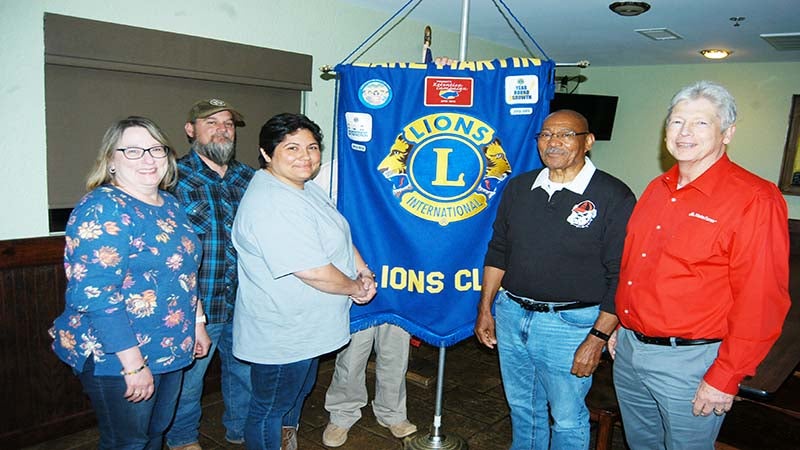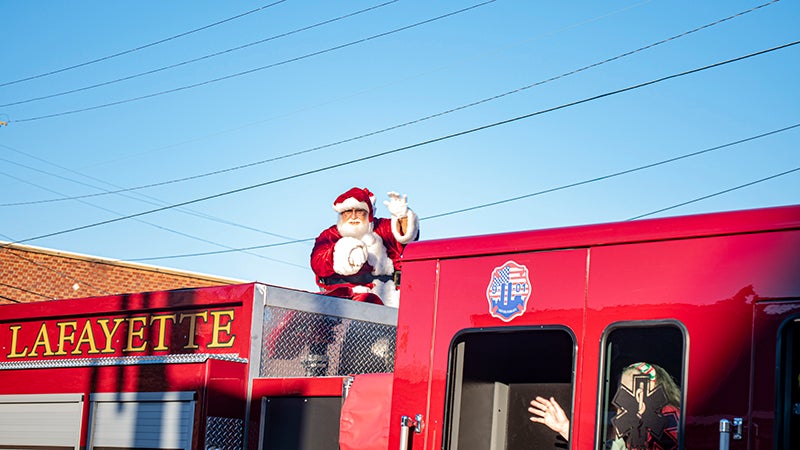Grillin’ For Girls raises over $20,000 for the Tallapoosa Girls Ranch
Published 7:00 am Thursday, March 24, 2022
|
Getting your Trinity Audio player ready...
|
VALLEY — Candace Gulley, the director of the Tallapoosa County Girls Ranch, was the guest speaker at the Monday meeting of the Valley Lions Club and had good news to report on this past weekend’s Grillin’ for Girls fundraiser at Valley Community Center. Over $20,000 was raised, and sponsors including the Walton Law Group, Kimbell’s Food By Design, District Attorney Jeremy Duerr and the Chambers County Sheriff’s Office will be covering the expenses.
“It was a fantastic event, and we thank everyone who took part in it,” she said. “We all had a good time.”
Gulley told Lions Club members that one of her favorite things to do is to talk to people about the positive difference that is being made by the Alabama Sheriffs’ Youth Ranches.
“We have three ranches open right now with a fourth one to open soon,” she said.
There are two girls ranches, one in Tallapoosa County and one in Colbert County, and a boys ranch in Baldwin County. A second boys ranch will soon be opening in St. Clair County near Pell City.
The Tallapoosa County Girls Ranch was established in 1973.
“We were packed full in the 1980s,” said Gulley, who has been with the ranch for the past 10 years. “Two of the homes had to close because they had more than one story. We had to have an elevator in each home to keep it open.”
Right now the girls ranch has 19 girls living with two sets of house parents. They could have more with more house parents. A search is now underway to locate a Christian couple who would like to move to the ranch and take on the responsibility of raising a house full of girls in the 6 to 18 age group.
The girls ranch is different from a group home in that the staff lives in the same house with the girls. Each home is approximately 4,000 square feet in size with a long hallway in the center that goes from one end of the house to the other.
“Our mission is to provide family-style residential care,” Gulley said. “We want them to come in, kick off their boots and to feel at home. My husband, Tommy, and I have been there for 10 years. A total of 86 girls have called us mom and dad over that span. We operate like a community inside the ranch. They attend school in Reeltown, and we provide tutoring help for them. At the end of the day, each girl is in her own home.”
The ranch has rules, and the house parents apply them consistently.
“We have to be as consistent as possible,” Gulley side, “If not the teenagers, we are raising will use them against you.:
Gulley said it’s a constant battle to get it across that the girls aren’t there due to some fault of their own. Many people assume that they must be bad to live on a ranch.
“When people ask Tommy what he does, he tells them he’s with the girls ranch,” Gulley said. “They will then tell him, ‘Oh, you are out there where those bad girls are.’”
It makes him angry because it’s just not true.
He does have a standard answer for that: “They are not bad girls, just normal teenagers.”
Some of the girls have been physically or sexually abused when they come to the ranch. When trust has been broken with their biological parents, it’s hard for even the best-intentioned adult to earn their trust.
“We believe in what we are doing,” Gulley said. “We introduce them to Jesus to help them overcome the problems in their lives. It’s mission work, and it’s not easy, but we are so proud when they graduate from high school and go on to college. Three of this year’s seniors have already been accepted into college and a fourth one is getting close to being accepted. Despite what life has given them we want them to succeed.”
There have been girls at the ranch whose dads are in prison or whose moms chose a life of drug use and men over raising them.
Many of the girls finish college and go on to successful careers, but they don’t forget their ranch family.
“They are always calling us to ask how we are and what they can do to help,” Gulley said. “They often ask our advice on things that are going on in their lives.”
The state’s youth ranches are dependent on private donations from corporations, businesses, civic clubs, churches and individuals. There’s little government funding in the form of a bed fee for the children who come through the state’s foster care program. Many of the girls have been placed there through the Department of Human Resources (DHR) and many come through private placement.
Everyone on the ranch, both girls and staff, are kept busy running a 200-acre farm.
“We have 45 cows, seven horses, 14 goats and a whole lot of chickens to take care of every day,” Gulley said.
The girls rise early, take care of assigned chores, participate in a devotional and have a flag ceremony before they head to school. They have more chores to do when they return.
“We try to utilize as best we can the resources we have,” Gulley said.
Prior to coming to the ranch, Gulley worked for the U.S. Postal Service for a time and later with behaviorally-challenged kids. This helped her a lot in her present job.
“We need some house parents right now,” she said. “It will be a life-changing experience for you. We also need volunteers. We have a big ranch to tend to and can use people of all skill levels. If you want to volunteer for us, we’ll find something for you to do.”





